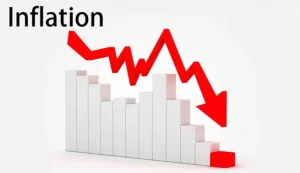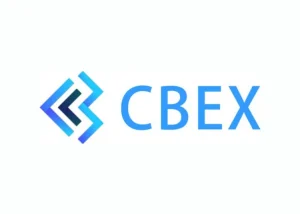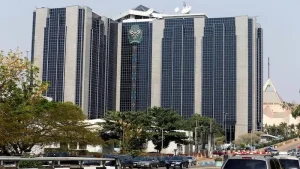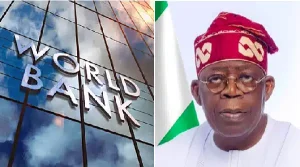CONTENTS
-
INFLATION & ECONOMIC OUTLOOK
-
CBEX SCAM ALERT
-
CBN BILLION-NAIRA COMBACK
-
ENERGY OVERHAUL
-
PETROLEUM REFORMS
-
WORLD BANK’S $1.08B LOAN
INFLATION & ECONOMIC OUTLOOK

Nigeria’s economy is navigating a complex landscape characterized by fluctuating inflation rates, modest economic growth, and the ongoing effects of structural adjustments. Despite various efforts to stabilize the economy, challenges persist, particularly in managing inflation and stimulating sustainable growth.
- Inflation Trends
Inflation in Nigeria has been a persistent challenge, driven by both domestic and international factors. According to the International Monetary Fund (IMF), Nigeria’s inflation rate is expected to average 25% in 2025, which represents a noticeable decline from the 33.2% recorded in 2024. This reduction in the inflation rate is attributed to several key factors, including the monetary tightening policies implemented by the Central Bank of Nigeria (CBN).
Over the past year, the CBN has raised interest rates significantly to curb the rising inflation, driven by factors such as higher food prices, exchange rate volatility, and the global energy crisis. Although the tightening of monetary policy has been somewhat effective in controlling inflation, it has also placed pressure on credit accessibility, making it more difficult for businesses and consumers to access affordable financing.
Despite the challenges, the IMF has also projected a more optimistic inflation outlook, with some analysts predicting that the inflation rate could fall to 15.5% by the end of 2025. This more favorable projection is based on expected structural reforms, better fiscal consolidation, and the anticipated impact of policy changes aimed at stabilizing the macroeconomic environment.
Some of these reforms include enhanced budget discipline, improved tax revenue collection, and reforms in the agricultural sector aimed at reducing Nigeria’s reliance on food imports.
The inflationary pressure, though expected to ease slightly, continues to weigh heavily on Nigerian consumers, especially with food prices remaining stubbornly high. Basic goods such as rice, oil, and other staples continue to experience significant price hikes, putting strain on household budgets, particularly for the most vulnerable populations.
- Economic Growth
In terms of economic growth, the IMF has forecasted that Nigeria’s GDP will grow by 3.2% in 2025, a slight increase from the 2.9% recorded in 2024. The country is expected to benefit from several factors contributing to this growth, including a recovery in the oil sector. Oil production, which has long been the backbone of Nigeria’s economy, has been impacted by security challenges in the Niger Delta and global market fluctuations. However, recent improvements in security and increased oil production capacity have set the stage for modest recovery in the sector. This recovery, if sustained, will significantly contribute to government revenues and the overall economic growth trajectory.
Additionally, the agriculture sector is expected to play a central role in boosting Nigeria’s growth, driven by better weather conditions and the expansion of dry season farming. The introduction of new farming techniques, such as climate-resilient crops and improved irrigation systems, has allowed farmers to diversify production and reduce dependency on seasonal rainfall. This is expected to increase food security and contribute to higher agricultural output, particularly in regions that have historically been vulnerable to food insecurity.
Nigeria’s efforts to improve security in various regions are also anticipated to have a positive effect on business activities and investor confidence. Security improvements have already led to more stable business environments in areas previously plagued by insurgencies and criminal activities.
However, the government still faces significant challenges in ensuring peace and stability across the country, which remains critical for sustaining growth in the long term.
- Implications
While the projected decline in inflation provides some relief, the overall economic environment in Nigeria remains fragile and susceptible to both external shocks and domestic challenges. The global economic outlook, including fluctuations in oil prices, trade relations, and geopolitical tensions, continues to pose risks to Nigeria’s growth prospects.
Furthermore, domestic issues such as insecurity, corruption, and political instability continue to undermine the country’s development objectives.
The reduction in inflation, while a positive sign, may not be sufficient to significantly alleviate the purchasing power challenges faced by Nigerian households. For many Nigerians, the high cost of living remains a major concern, especially in the face of stagnant wages and growing unemployment.
In this context, the government’s focus must be on implementing policies that promote sustainable growth, such as increasing investments in infrastructure, enhancing access to finance for small and medium-sized enterprises (SMEs), and improving the education and healthcare sectors.
Moreover, the government will need to strengthen fiscal discipline to reduce the country’s debt burden and ensure that public spending is directed toward projects that can stimulate long-term economic development. Investments in sectors like renewable energy, technology, and education will be crucial in diversifying the economy and reducing dependence on oil revenues. Structural reforms, such as those targeting corruption and inefficiency in public institutions, are also critical in improving the overall business climate.
While there is cautious optimism about Nigeria’s economic outlook for 2025, the country remains at a crossroads. It faces the challenge of navigating a complex set of inflationary pressures, a sluggish growth rate, and persistent socio-economic issues. Sustained efforts in monetary policy, fiscal discipline, and structural reforms are critical to ensuring that Nigeria can achieve the desired stability and growth that will benefit its citizens in the coming years.
CBEX SCAM ALERT

A Cautionary Tale for Nigerian Investors
In April 2025, the CBEX cryptocurrency investment platform collapsed, leaving thousands of Nigerians devastated. The platform, which had promised high returns on investments, was exposed as a fraudulent scheme, trapping funds estimated to exceed ₦1.3 trillion. The House of Representatives expressed deep concern over the scam, urging swift action from law enforcement agencies to apprehend the perpetrators and recover the stolen funds
CBEX had deceptively adopted the name “CBEX,” misleading investors into believing it was affiliated with the legitimate China Beijing Equity Exchange. However, the Chinese institution disavowed any involvement in digital asset trading or operations in Nigeria.
The Economic and Financial Crimes Commission (EFCC), in collaboration with the Nigeria Police Force and Interpol, has commenced investigations to track the perpetrators, safeguard investors, and recover withheld funds where possible. The House also emphasized the importance of the recently enacted Investment and Securities Act (ISA) 2025, which strengthens the SEC’s enforcement powers and criminalizes Ponzi schemes and related frauds.
The CBEX debacle has reignited discussions on the prevalence of Ponzi schemes in Nigeria and the need for increased financial literacy among citizens.
Nigeria has witnessed a series of Ponzi schemes that have defrauded citizens of billions of naira. These schemes often promise unrealistic returns and exploit regulatory loopholes and the public’s desire for quick wealth.
A list of Ponzi schemes in the last 10years:
MMM Nigeria – 2016
Ultimate Cycler – 2016
Get Help Worldwide (GHW) – 2016
Twinkas – 2016
Icharity Club – 2016
Crowd Rising – 2016
Claritta – 2016
Help2Get – 2016
Loopers Club – 2016
Givers Forum – 2016
NNN Nigeria – 2017
MMM Cooperation – 2017
GCCH (Global Crediting Cooperative Hub) – 2017
Money Riot – 2017
RevoMoney – 2017
SwissGolde. Amongst others
- Why Nigerians Must Say NO to Ponzi Schemes
The story of CBEX and countless Ponzi schemes before it isn’t just a financial tragedy, it’s a national lesson that keeps repeating itself. Here’s a deeper dive into the key takeaways and why Nigerians must start protecting themselves and their wallets:
- If It Sounds Too Good to Be True… It Is.
Ponzi schemes always promise outrageously high returns: “Invest ₦50,000 and get ₦150,000 in 7 days.” That’s not investing, that’s gambling with deception. Real investments take time, involve risk, and are tied to actual business models. The higher the promised return, the higher the risk. But in Ponzi schemes? The risk is always 100% loss.
- The Greed Factor: Scammers Prey on Urgency & Desperation
Scammers know how to sell dreams. They use your need for quick cash, your financial struggles, and even peer pressure to lure you in. These schemes aren’t just banking on your naivety, they exploit your hustle. Nigerians are hardworking and ambitious. But ambition without caution leads to disaster.
- Herd Mentality: “If Everyone’s Doing It, It Must Be Safe”
One of the biggest tricks Ponzi schemes use is social proof. You’ll hear things like, “Even my church members are doing it!” or “My colleague just cashed out ₦500k last week!” The more people you see joining, the safer it feels, but that’s how the trap works. You’re not early, you’re next in line to lose.
- They Always Start With Payouts – Until They Don’t
Every scheme begins by paying early investors, often even with your own money. You feel safe. You invest more. You invite friends and family. Then one day, withdrawals stop, the website crashes, WhatsApp groups disappear and so does your money. Just ask anyone who lost millions to CBEX, MMM, Racksterli, or MBA Forex.
CBN BILLION-NAIRA COMBACK

In a significant turnaround, the Central Bank of Nigeria (CBN) has posted a ₦38.8 billion profit after tax for the 2024 financial year, marking a strong rebound from the ₦1.15 trillion loss recorded in 2023. This improvement, detailed in the apex bank’s newly released audited financial statements, signals a notable shift in the financial health of Nigeria’s central monetary authority.
- Key Drivers of Profitability
The CBN’s return to profitability was primarily driven by a surge in revaluation gains and investment income. The bank recorded ₦1.89 trillion in revaluation gains—a dramatic recovery from a ₦28 billion loss in the same category in 2023. These gains reflect increased values in financial assets such as foreign reserves and government bonds, boosted by favorable market conditions.
Additionally, the bank’s other income rose sharply to ₦12.9 trillion, more than tripling its earnings from the previous year. These gains underscore the positive impact of improved investment strategies, policy reforms, and the revaluation of key assets.
- Persistent Losses on Derivatives
Despite the overall positive outcome, the financial statements reveal ongoing vulnerabilities. Losses from derivative financial instruments—complex contracts often used to hedge against risk—widened substantially. In 2024, the CBN lost ₦13.88 trillion through these instruments, more than doubling the ₦6.25 trillion loss recorded in 2023. The report does not provide clarity on the specific market conditions or management decisions that contributed to these significant losses.
This area remains a concern, especially given the growing complexity of global financial markets and the need for enhanced risk management frameworks.
- Asset Growth Anchored by Foreign Reserves
The CBN’s total assets surged to ₦117.6 trillion in 2024 from ₦87.9 trillion the previous year. This 34% increase was largely supported by the rise in Nigeria’s foreign reserves, which climbed to ₦54.7 trillion from ₦29.9 trillion. These reserves—comprising foreign currency holdings used to stabilize the naira and support external obligations—continue to play a vital role in monetary policy and external debt management.
The bank’s holdings in Special Drawing Rights (SDRs)—international reserve assets from the International Monetary Fund—also grew to ₦6.36 trillion, up from ₦3.95 trillion, reflecting stronger international support and a more diversified reserve base.
- Credit Exposure and Cash Position
While the CBN’s asset position improved overall, some indicators weakened. Cash and bank balances dropped sharply to ₦34.72 billion, compared to ₦111.15 billion in 2023. Similarly, loans and receivables declined to ₦10.96 trillion, down from ₦15.09 trillion, indicating a more conservative approach to lending and a reduction in credit exposure.
On the liabilities side, several key figures saw notable increases:
- Currency in circulation grew to ₦5.44 trillion from ₦3.65 trillion,
- Total deposits increased to ₦52.38 trillion, up from ₦38.18 trillion,
- Debt instruments issued by the CBN rose to ₦24.27 trillion, compared to ₦17.40 trillion the year prior.
- Other liabilities also edged higher, reaching ₦21.20 trillion, while IMF-related obligations more than doubled to ₦5.07 trillion, up from ₦2.52 trillion in 2023.
These increases pushed total liabilities to ₦116.59 trillion, compared to ₦85.86 trillion the previous year. Consequently, the bank’s total equity declined significantly, falling to ₦1.01 trillion from ₦2.01 trillion, while its standalone equity dropped to ₦728.24 billion, down from ₦882.42 billion.
Despite the profit posted in 2024, the CBN continues to carry substantial accumulated losses. The bank’s group-level losses stood at ₦524.6 billion, while standalone losses worsened to ₦798.6 billion, underlining the long-term structural and operational issues that still require resolution.
The Central Bank of Nigeria’s 2024 financial performance presents a mixed but cautiously optimistic picture. While the return to profit and the growth in foreign reserves reflect improved macroeconomic management and market conditions, the persistent losses on derivatives, weakening equity, and high liabilities highlight the need for sustained reforms and prudent financial governance.
As the country navigates a complex global financial environment, the apex bank’s ability to manage risks, optimize asset portfolios, and strengthen internal controls will be critical to its continued recovery and stability.
ENERGY OVERHAUL

As of April 2025, Nigeria’s energy sector is undergoing pivotal transformations aimed at improving production capacity, diversifying energy sources, and ensuring long-term economic stability.
- Strategic Petroleum Reserve Initiative
To safeguard the economy from global supply shocks, Nigeria plans to create a national strategic petroleum products stockpile by the end of the year. This initiative aims to protect the country’s fuel supply from international disruptions.
- Renewable Energy Focus
Nigeria is shifting towards diversifying its energy mix by investing in renewable energy sources such as solar, wind, and hydroelectric power. These efforts are crucial in reducing the nation’s dependence on fossil fuels and promoting sustainable energy practices.
- Dangote Refinery Milestones
The Dangote Refinery is progressing towards full-scale operations with an annual capacity of 650,000 barrels per day. This refinery will significantly reduce Nigeria’s reliance on imported refined products, bolstering fuel self-sufficiency.
- Oil Production Enhancement
The government is intensifying efforts to boost oil production by reactivating dormant oil fields and attracting new investment in exploration and production. This initiative is aimed at meeting both domestic demand and export goals.
- Carbon Market Policy
The finalization of the Carbon Market Activation Policy will unlock up to $2.5 billion in investments by 2030, driving environmental sustainability while positioning Nigeria as a leader in the global clean energy transition.
- Oil Theft Prevention and Security
To combat oil theft in the Niger Delta, the Nigerian government has ramped up security measures with initiatives like Operation Delta Sanity. These actions aim to secure the country’s oil production and reduce illegal activities.
- Implications for the Economy
These reforms have significant economic implications:
Economic Diversification: Investments in renewable energy and mining are helping reduce Nigeria’s reliance on oil revenues.
Energy Security: Efforts like the strategic petroleum reserve and anti-theft measures are enhancing energy security.
Investment Attraction: Policies such as the Carbon Market Activation are attracting both local and foreign investments, boosting growth in the energy sector.
PETROLEUM REFORMS

Nigeria’s petroleum sector is undergoing significant developments aimed at enhancing domestic production, improving infrastructure, and ensuring energy security.
- Strategic Petroleum Reserve Initiative
In response to global supply disruptions, Nigeria plans to establish a national strategic petroleum products stockpile by the end of 2025. This initiative, mandated by the Petroleum Industry Act, aims to create a reserve exceeding the current 30-day supply buffer, modeled after the U.S. Strategic Petroleum Reserve. The move is expected to bolster energy security and stabilize fuel supply amidst frequent shortages and long queues.
- Dangote Refinery’s Operational Milestones
The Dangote Refinery, Africa’s largest single-train refinery, is progressing towards full-scale operations. With an annual capacity of 650,000 barrels per day, the refinery aims to reduce Nigeria’s reliance on imported refined petroleum products and contribute to fuel self-sufficiency. Despite challenges in crude supply, the refinery is expected to achieve full operational capacity in April 2025.
- Oil Production Enhancement Efforts
The Nigerian government has intensified efforts to increase oil production to meet both domestic and export demands. This includes reactivating dormant oil fields and encouraging investment in exploration and production activities. However, in March 2025, Nigeria’s crude oil production dropped to 1.603 million barrels per day, marking the lowest output since January and falling short of OPEC quotas. The decline coincided with political unrest in Rivers State following President Tinubu’s controversial appointment of a sole administrator, sparking protests in the oil-rich region.
- Carbon Market Policy Implementation
The Nigerian government has finalized a Carbon Market Activation Policy aimed at unlocking up to $2.5 billion in investments by 2030. This policy is expected to foster environmental sustainability and attract international investments in the energy sector.
- Oil Theft Prevention and Security Measures
The government has intensified efforts to combat oil theft in the Niger Delta region. Initiatives such as Operation Delta Sanity, involving the use of advanced surveillance equipment and increased security personnel, are being implemented to curb illegal activities and enhance oil production.
- Implications for the Nigerian Economy
These developments in the petroleum sector have significant implications for Nigeria’s economy:
- Economic Diversification: Investments in renewable energy and the mining sector are contributing to the diversification of Nigeria’s economy, reducing its dependence on oil revenues.
- Energy Security: The establishment of a strategic petroleum reserve and efforts to combat oil theft are enhancing the nation’s energy security, ensuring a stable supply of petroleum products.
- Attracting Investments: Policies such as the Carbon Market Activation are attracting both domestic and international investments, fostering economic growth and technological advancements in the energy sector.
- Fiscal Sustainability: Adjustments in electricity tariffs and subsidy reductions are aimed at improving the financial health of the power sector, ensuring its sustainability and capacity to meet the growing energy demands.
While challenges remain, these initiatives are steps toward a more resilient and sustainable energy future for Nigeria.
WORLD BANK’S $1.08B LOAN

In a crucial move to support Nigeria’s post-reform recovery, the World Bank has approved a concessional financing package worth $1.08 billion. Initially designed to help the country respond to the economic shocks of the COVID-19 pandemic, this loan has now been repurposed to assist Nigeria’s broader economic recovery efforts, particularly after significant reforms such as the removal of fuel subsidies and the liberalization of the exchange rate in 2023.
The loan is set to address several key sectors vital to Nigeria’s long-term development: education, nutrition, and economic resilience. By targeting these areas, the World Bank aims to foster inclusive growth, reduce poverty, and improve Nigeria’s human capital.
- Loan Breakdown
The $1.08 billion loan will be allocated to the following areas:
$500 Million for Economic Stimulus: This portion will focus on creating jobs, developing skills, and supporting livelihoods, which are essential to addressing Nigeria’s unemployment crisis. The stimulus will also aim to boost local businesses and provide support for vulnerable populations.
$500 Million for Education: This funding will improve the quality of education by enhancing teacher training, increasing student enrollment, improving school infrastructure, and addressing high dropout rates. The goal is to ensure better access to quality education for all Nigerian children, particularly those in underserved areas.
$80 Million for Nutrition: Aimed at addressing malnutrition in rural and underserved regions, this funding will be used to provide critical nutrition support to vulnerable communities, improving health outcomes and quality of life for many Nigerians.
- Human Capital Development
This loan is particularly focused on investing in Nigeria’s human capital. The long-term benefits of these investments include a more skilled and productive workforce, better health outcomes, and reduced poverty. Improving education and nutrition, particularly in underserved rural areas, will help Nigeria break the cycle of poverty and build a more equitable society. These changes could also enhance Nigeria’s competitiveness in the global economy, as better-trained individuals are likely to drive innovation and economic growth.
- Impact of the Loan
The World Bank’s loan is expected to have a transformative impact on Nigeria’s development trajectory. The focus on education and nutrition aligns with global efforts to reduce inequality and provide opportunities for all. By improving the quality of education and addressing malnutrition, the loan has the potential to raise the standard of living for millions of Nigerians. In the long run, the country could see a more educated and healthier workforce, which is essential for sustainable economic growth.
- Debt and Fiscal Considerations
Despite its concessional nature, this loan adds to Nigeria’s growing public debt. While the interest rates on concessional loans are lower than commercial loans, fiscal analysts have raised concerns about the long-term impact of increasing debt levels on Nigeria’s financial stability. The Nigerian government will need to ensure that these funds are used effectively, with strong governance frameworks in place to track disbursements and measure outcomes.
Analysts also emphasize the importance of transparent communication regarding the country’s debt servicing plans to avoid further fiscal strain. The effectiveness of this loan will depend not only on its successful implementation but also on how Nigeria manages its overall debt burden moving forward.
The $1.08 billion World Bank loan represents a vital step in Nigeria’s post-reform recovery. While it offers significant opportunities for improving education, nutrition, and economic resilience, the challenge will lie in the effective management and transparent use of these funds. At the same time, Nigeria must continue to address the deep-rooted structural issues in its power sector and broader economy to ensure long-term, sustainable growth.
The ability to balance fiscal responsibility, sectoral reforms, and effective investment will shape Nigeria’s economic trajectory in the years to come.
SOURCES: Nariametrics, Businessday, istock images, Punch newspaper, Premium Times, Leadership News, Vanguard News, Daily Times Nigeria, Linda Ikeji’s Blog.
DISCLAIMER
This publication is produced by Centrum Finance Company Limited solely for the information of users who are expected to make their own investment decisions without undue reliance on any information or opinions contained herein. The opinions contained in the report should not be interpreted as an offer to sell, or a solicitation of any offer to buy any investment. Whilst every care has been taken in preparing this document, no responsibility or liability is accepted by any member of the Company for actions taken because of the information provided in this publication

